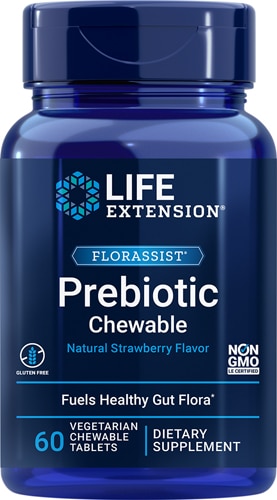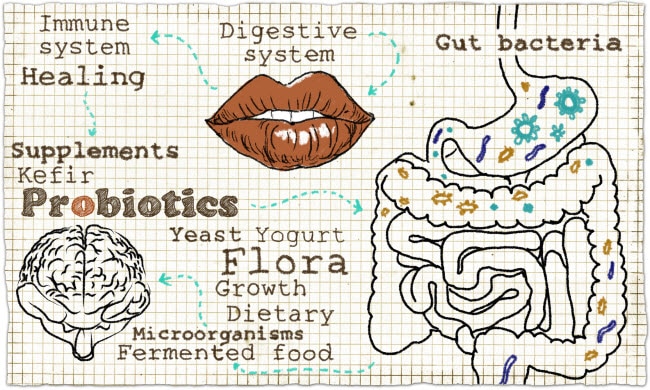Probiotics overcame massive skepticism—and ignorance—to become the wildly popular microbial cocktails they are today. Probiotics play a substantial role in regulating our overall health, particularly our digestive and immune systems. And exciting new research continues to turn up remarkable links between the microbiome and the brain. According to the New York Times, “scientists are finding evidence that microbiome may play a role not just in Alzheimer’s disease, but Parkinson’s disease, depression, schizophrenia, autism and other conditions.”
Still, probiotics remain something of an alien supplement, with their impossible-to-pronounce strains, ginormous numbers of CFUs and other unfamiliar terms. We thought it would be helpful to break down all the gobbledygook into easy to understand concepts. You wondered, we “micro”-splained:
Here’s our primer of eight key probiotic terms and what they mean.
Probiotics definition list
1. Microbiome
The totality of the collective of genomes that flourish in our gut. There are actually many communities of distinct bacteria that protect us against germs, break down food to release energy and produce vitamins.
2. Microflora
Similar to the microbiome but on a smaller scale, intestinal microflora refers to the bacteria and other organisms that live inside the intestines. Other microflora habitats include the skin and genitals.
3. CFU or CFUs
CFUs are an acronym for Colony Forming Units, the scientific term for “number of organisms” (i.e., how many microbes are in the colony of microbes in the product, or in your intestine). For probiotics to be considered viable, the CFUs should contain quantities in the billions. The amount of CFUs in a probiotic can play a big part in the probiotic’s efficacy.
4. Fermentation
Fermentation uses microorganisms, such as bacteria or yeast, to break down food into a simpler form, such as grapes into wine, milk into yogurt, cabbage into sauerkraut. Fermentation adds beneficial bacteria to your diet, preserves food and enhances its digestibility.
5. Friendly Bacteria & Yeast
Live bacteria and yeasts are “friendly” because they benefit the body, specifically the digestive system, by helping digest food and destroy disease-causing microorganisms.
According to a recent study, health benefits have been associated with these specific strains: Lactobacillus, Bifidobacterium, Saccharomyces, Enterococcus, Streptococcus, Pediococcus, Leuconostoc, Bacillus, Escherichia coli.
6. Prebiotic
A prebiotic is a natural nutrient that allows probiotics to thrive. Excellent sources of dietary fiber, some prebiotics have also been shown to enhance the absorption of important minerals like calcium.†
7. Inulin
Inulin is perhaps the best-known prebiotic. It occurs naturally in thousands of edible plants, including asparagus, artichokes, bananas, barley, chicory, garlic, rye and wheat.
8. Synbiotic
A synbiotic blends both probiotics and prebiotics. It makes sense to ensure your supplement contains both pro- and prebiotics, because the two work in tandem to deliver a robust supply of gut-friendly bacteria.
†These statements have not been approved by the Food and Drug Administration. These products are not intended to diagnose, treat, cure or prevent disease.




